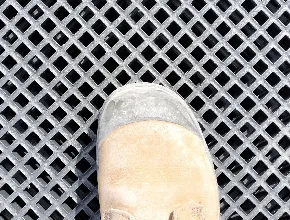loading...
- No. 9, Xingyuan South Street, Dongwaihuan Road, Zaoqiang County, Hengshui, Hebei, China
- admin@zjcomposites.com
- +86 15097380338
- Welcome to visit our website!
Exploring the Advantages and Applications of FRP Vessels in Various Industries
Understanding FRP Vessels Innovations and Applications
Fiber Reinforced Polymer (FRP) vessels have gained significant traction in various industries due to their unique properties and advantages over traditional materials like metals and concrete. Made from a combination of resin and fibers, typically glass or carbon, FRP vessels offer a robust solution for storing, transporting, and processing liquids, gases, and other materials.
Advantages of FRP Vessels
One of the primary advantages of FRP vessels is their exceptional strength-to-weight ratio. Unlike their metal counterparts, FRP vessels are lighter, which not only eases transportation and installation but also reduces the overall structural load in applications where weight is a critical factor. This characteristic is especially beneficial in industries such as marine, aerospace, and construction, where weight saved can lead to significant operational efficiencies.
Another notable advantage of FRP vessels is their resistance to corrosion. Many FRP vessels are designed to withstand harsh chemical environments, making them ideal for the storage and transportation of aggressive chemicals, waste products, and acidic solutions. This corrosion resistance extends the lifespan of FRP vessels and reduces the need for frequent replacements, leading to cost savings over time.
Moreover, FRP vessels are highly customizable. Manufacturers can tailor the thickness, shape, and other properties of the vessels to suit specific applications. This adaptability enables industries to design vessels that meet their precise requirements, whether for high-pressure systems or specialized storage conditions.
Applications of FRP Vessels
FRP vessels are used in a variety of applications across different sectors. In the chemical industry, they are commonly employed for the storage of corrosive materials such as acids and bases. The ability to resist chemical degradation means that FRP vessels can maintain integrity and performance without the degradation that can compromise metal containers.
frp vessels

In the water treatment industry, FRP vessels are essential components in processes such as filtration and ion exchange. Their non-corrosive nature ensures that they remain functional and safe in applications where traditional materials might fail. With the increasing global focus on environmental sustainability, FRP vessels also contribute to the green economy by providing more durable and efficient alternatives to traditional materials.
The oil and gas sector has also embraced FRP vessels for various applications, including storage tanks and piping systems. Given their resistance to harsh environmental conditions and chemicals present in this industry, FRP vessels are an optimal choice for ensuring safety and reliability.
Future Trends
As technology evolves, the manufacturing processes for FRP vessels are becoming more advanced. Innovations in resin formulations and fiber technologies are leading to better performance characteristics, such as higher strength, better thermal resistance, and further reductions in weight. Nanotechnology, for instance, is paving the way for even more innovative FRP vessels that surpass current limitations.
Sustainability is also driving the future of FRP technology. Manufacturers are increasingly focusing on the use of bio-based resins and recycled fibers to produce environmentally friendly FRP vessels. This shift not only reduces the carbon footprint of production but also aligns with the global push towards greener practices across industries.
Conclusion
FRP vessels represent a remarkable advancement in material science, combining durability, lightweight properties, and corrosion resistance to meet the diverse needs of modern industries. Their versatility makes them an ideal choice for applications ranging from chemical storage to water treatment, and as innovations continue to emerge, the potential applications for FRP vessels are likely to expand even further. With growing interest in sustainable manufacturing and eco-friendly practices, the future of FRP vessels looks promising, paving the way for safer, more efficient, and environmentally conscious solutions across various sectors. Whether in the realm of industrial applications or environmental management, FRP vessels will undoubtedly play a crucial role in shaping the landscapes of our future.
-
The Power of Filter VesselsNewsMay.19,2025
-
The Benefits of FRP WalkwaysNewsMay.19,2025
-
The Benefits of FRP Vessels: 1054 FRP VesselNewsMay.19,2025
-
FRP Pressure Vessels: Leading the Way in Innovation and ReliabilityNewsMay.19,2025
-
Explore the Benefits of FRP Grating for Your Industrial NeedsNewsMay.19,2025
-
Discover the Advantages of GRP GratingsNewsMay.19,2025
-
Revolutionary Modular Handrail Systems Redefine Safety StandardsNewsMay.15,2025
